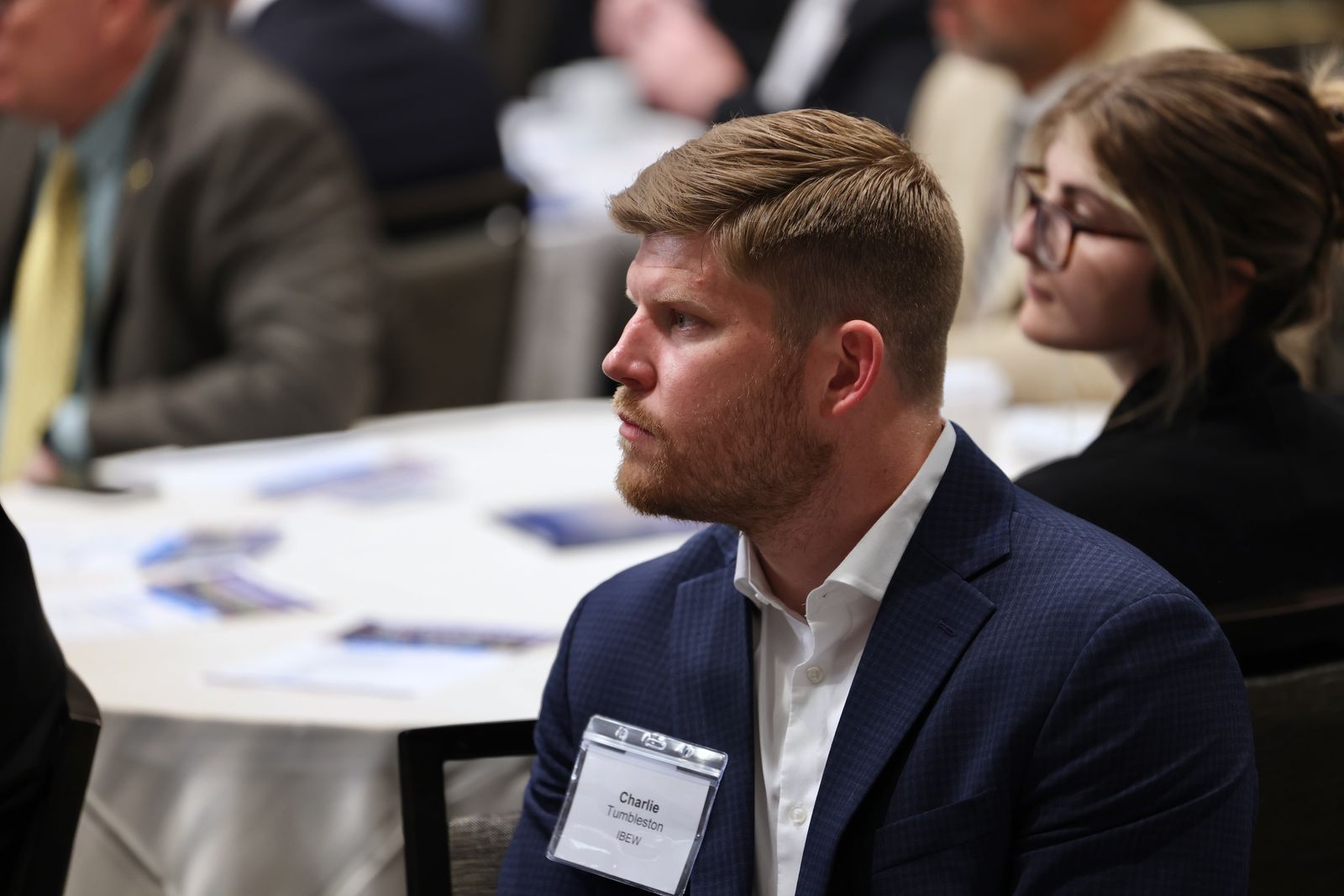The demand for utility-scale solar is high, and the need for skilled labor to install it is just as strong. Now the IBEW, Laborers International, and the International Union of Operating Engineers are making partnering with unions on solar projects easier and more profitable than ever.
On April 10 in Washington, D.C. the three unions celebrated an agreement at the Solar Good Jobs Summit which brought together union members, White House officials, developers, and utilities. The goal was to highlight how the agreement helps those who are interested in receiving the billions of dollars in tax breaks in the recent infrastructure laws.
In his opening remarks, IBEW International President Kenneth W. Cooper said this was a critical moment for the solar industry.
“We can make our nation’s transition to renewable energy a reality and create hundreds of thousands of good-paying, middle-class union jobs while we’re at it,” said Cooper, adding that the three unions understood they needed to work together to make it happen.
John Podesta, senior advisor to President Biden, said the laws reinforce the Biden administration’s emphasis on putting union labor on solar job sites. “We want to work with the people in this room to build a solar industry that benefits union workers,” Podesta said.
Deputy Secretary of the Treasury Wally Adeyemo also addressed the more than 200 leaders who attended. He told them that since the passage of the Inflation Reduction Act, private companies have invested $282 billion in over 1,300 clean energy projects.
The IRS is “laser focused” on enforcing the requirements for this funding. “No company will get a dollar of this credit if they don’t follow the law,” Adeyemo said.
A project labor agreement with the three unions is an easy way to meet these requirements, providing a steady supply of workers who already comply with the prevailing wage and registered apprenticeship requirements in the law. Local hire and helping to meet diversity guidelines are two more conditions also met by the historic agreement.
“We want to make sure these tax credits help workers get their fair share of the billions of clean energy investments being made in this country,” said Adeyemo.
For President Cooper, solar power was essential for the tri-trades unions.
“This partnership ensures the future of solar is built union and maintained union,” Cooper said.

